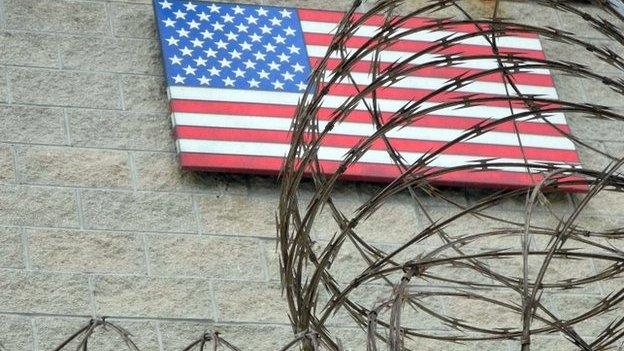Six sticking points holding back US-Cuban relations
- Published
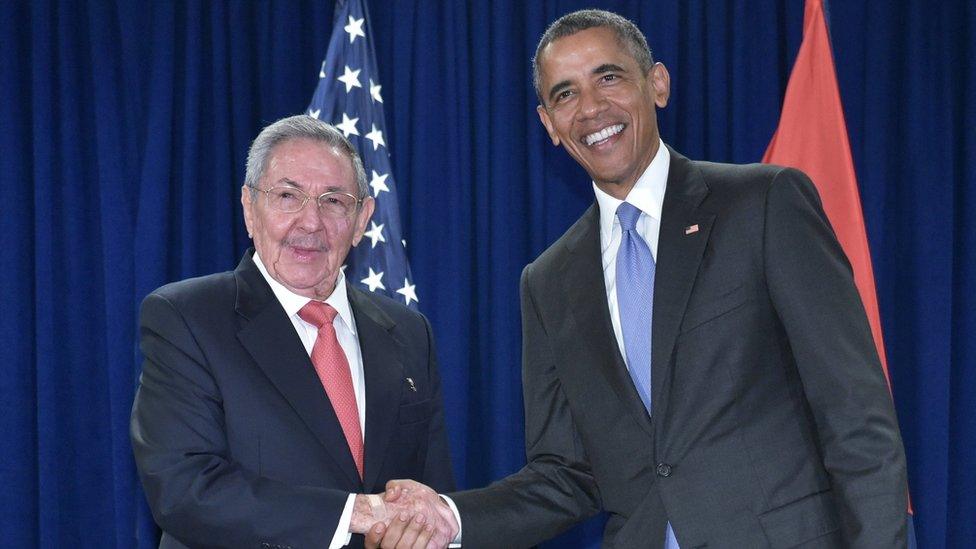
President Obama & President Castro shaking hands at the UN. Headquarters late last year.
President Obama's visit to Cuba is being seen as a significant step towards the full normalisation of relations between the US and Cuba after decades of hostility.
However, beyond the fanfare of the visit and after months of high-level meetings, there are still several important issues holding the countries back from re-establishing full ties.
Embargo
The embargo was Washington's reaction to the confiscation of American assets after the 1959 revolution. It has been a point of constant tension between the countries. Cuba has said lifting the embargo is necessary in order to stabilise ties. However, this is out of President Obama's hands as it requires approval from the Republican-controlled US Congress, where there is a great deal of opposition to lifting the embargo before Cuba makes significant moves towards greater democratisation.
Human rights
The US has insisted that it would like to see significant improvement to Cuba's human rights record and an end to the jailing of political dissidents. But Cuba says it sees human rights in a different way and points to the provision of universal health care and education as examples of the way it protects the rights of its citizens.
The US also wants Cuba to move away from its one party system of government but Cuba says it wants recognition for what it sees as its single-party "participatory democracy".
Cuban Adjustment Act
In 1966 the US implemented the Cuban Adjustment Act, which gives Cubans a unique fast track to permanent residency in the US. Cuba says this is a vestige of the Cold War that needs to end and has requested the removal of the law several times, due to lives lost at sea and human-smuggling. It has also argued that US migration policies have been used as a political weapon against the revolution.
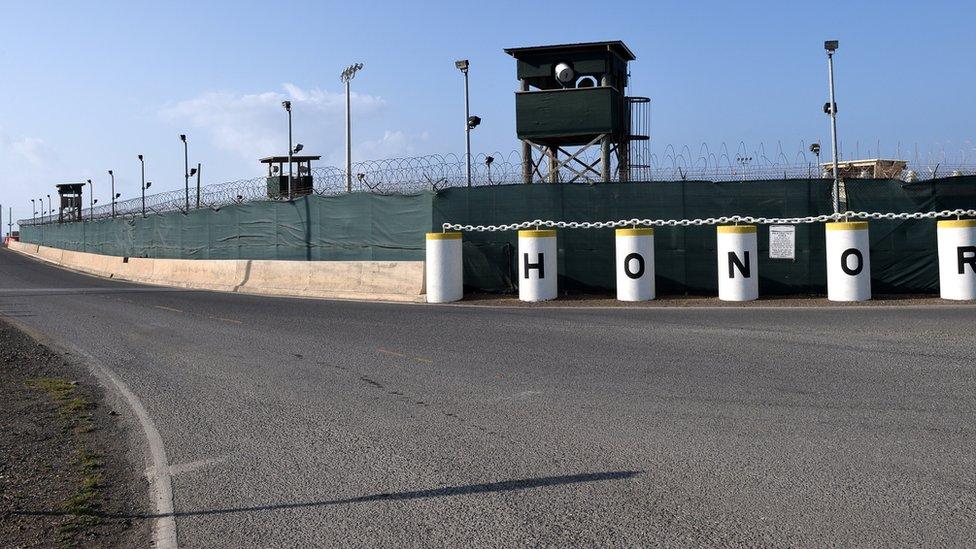
Havana and Washington have been unable to reach an agreement on the Guantanamo Bay US Naval Base
Guantanamo Bay US Naval Base
Havana and Washington have been unable to reach an agreement on the Guantanamo Bay US Naval Base, which gained notoriety following the 9/11 attacks when the US built a detention centre there for terror suspects. The base covers 45 sq miles and has been leased from Cuba since 1903, after the US helped it gain independence from Spain. It was leased for $4,085 a year and according to Fidel Castro the cheques, which Cuba considered an insult, have not been cashed since the revolution.
Havana has demanded the return of the territory on several occasions. As recently as 2015, President Raul Castro said the return of the "illegally occupied" territory would be "indispensable" in any normalisation of ties with the US. The US has never hinted at any plans to close the naval base.
Media
Raul Castro has strongly criticised Radio and TV Marti, the Miami-based US financed broadcaster, calling it a major impediment to a full normalisation. Cuba jams the signals of the broadcasts but Radio Marti, in particular, reaches listeners on the island with its 24-hour news broadcasts. The US maintains that the broadcasts offer Cubans access to news and information they are deprived of because of the tight controls the Cuban authorities keep on the media.
International relations
Cuba has also criticised Washington's opposition to the Socialist government in Venezuela as a major problem, describing it as interference in the domestic affairs of one of its major allies. And the US sees Cuba's ties with other left-leaning Latin American governments, for example Bolivia, as another key stumbling block.
BBC Monitoring reports and analyses news from TV, radio, web and print media around the world. You can follow BBC Monitoring on Twitter, external and Facebook, external.
- Published23 February 2016
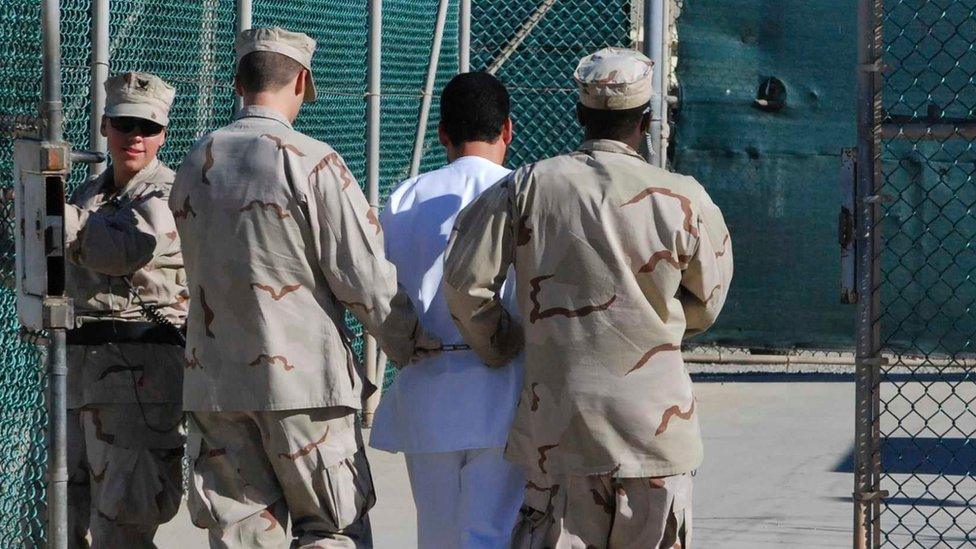
- Published13 October 2015
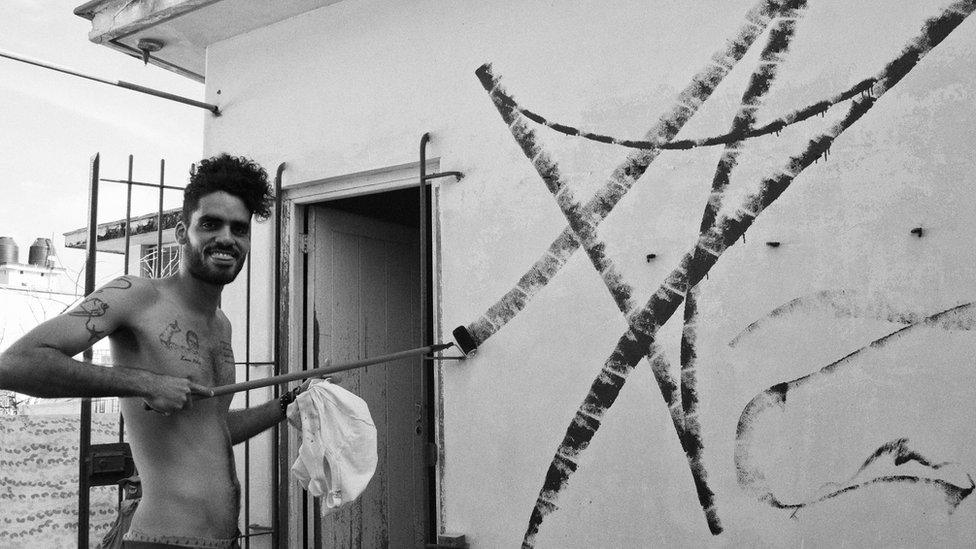
- Published14 January 2015
